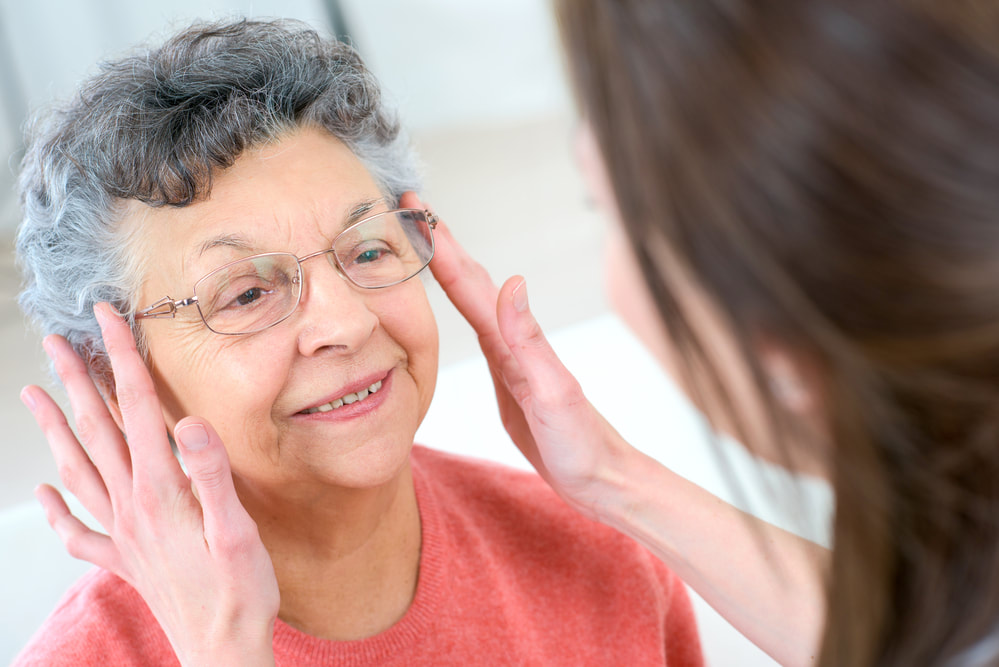How menopause affects eye healthWhen we think of menopausal symptoms, hot flashes, mood swings, and sleep problems may come to mind, but changing hormones can play a role in many body processes, and that includes the eyes. Decreases in certain hormones or fluctuating hormones may increase the risk of certain eye problems. It is also important to realize that menopause occurs in the 5th or 6th decade of life. As someone gets older, they increase their risk of certain eye diseases and conditions. Sometimes it is not clear whether aging itself is causing eye issues or menopause and changing hormones are the culprit. What changes may occur?Some women sail through menopause with no problems. For others, a vast array of symptoms can develop. When it comes to menopause and the eyes, the following issues may develop: Dry eyes: You may be at a higher risk for dry eyes after menopause. The reason is decreasing estrogen. Sex hormones likely influence tear production. When estrogen drops, tear production may also decrease. This can lead to chronically dry eyes. Puffiness: Eye puffiness can occur at any age, but you may be more prone to it as you age. After menopause, a decrease in collagen production can affect the skin under the eyes. The tissues that support the eyelids weaken. The skin may sag, and fat around the eyes may move to below the eyelid, leading to an eye bag. Dark circles: If puffiness is not enough, dark circles can also develop as we get older. The skin becomes thinner, which allows the blood vessels under the skin to become more visible. Eye diseases after menopauseEye diseases can occur at any age, but many diseases occur more frequently in older adults. Women in menopause may also have a higher risk of certain conditions. For example, according to the North American Menopause Society, research indicates that postmenopausal women have a higher rate of cataracts than men of the same age. The exact reason is not clear, but a change in hormones may play a role. Changes in circulating estrogen may also be a factor in the development of glaucoma. Keeping your eyes healthy after menopauseEye problems are not inevitable after menopause. There are several things you can do to decrease your risk of eye issues and maintain good vision. Consider the following:
Get regular eye exams: Regular eye exams can help you identify eye diseases early and start treatment. Maintain a healthy weight: Being overweight puts you at an increased risk of diseases, such as diabetes, which can affect the eyes. Wear sunglasses: Too much exposure to UV rays from the sun can increase your risk of cancer, including that of the eyes. Exercise: Exercise is good for your overall health. It may also help decrease your risk of certain eye diseases. Try to get enough sleep: Sleep is when your body heals itself. Getting enough sleep is vital for cell repair. Lack of sleep can also show in your eyes with redness and puffiness. If you have any questions, we are happy to help. Also, if you would like to ask whether an appointment with one of our eye doctors would be appropriate at this time, call our office at 508-746-8600. Comments are closed.
|
EYE HEALTH BLOGCategories
All
Archives
April 2024
|
|
Kadrmas Eye Care New England
55 Commerce Way, Plymouth, MA 02360
14 Tobey Road, Wareham, MA 02571 133 Falmouth Road (Rt 28), Mashpee, MA 02649 |
Phone Number:
1-508-746-8600 Hours: Monday through Friday — 8 AM – 4:30 PM |


 RSS Feed
RSS Feed
